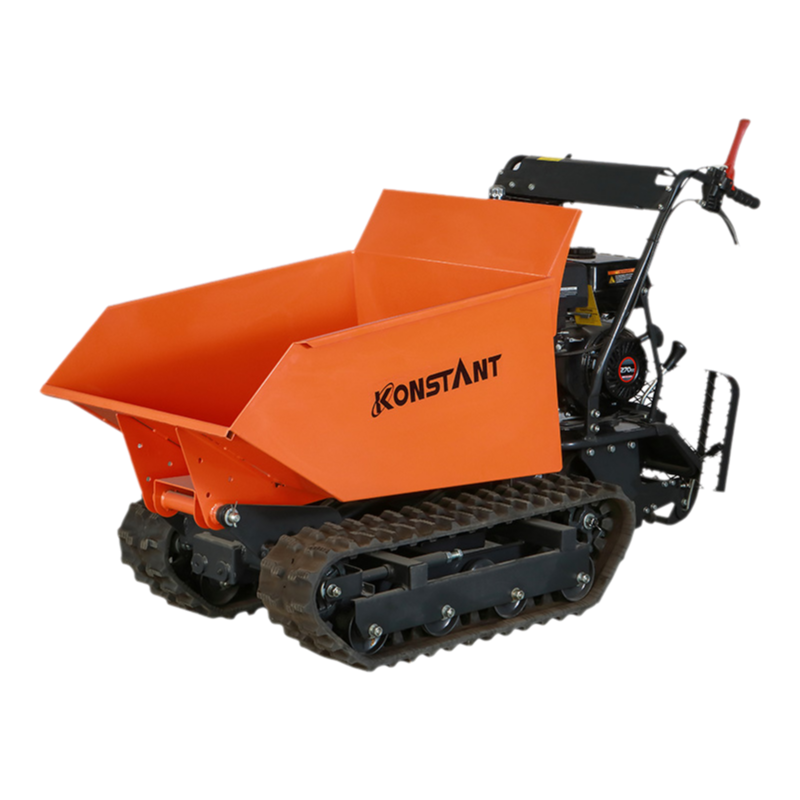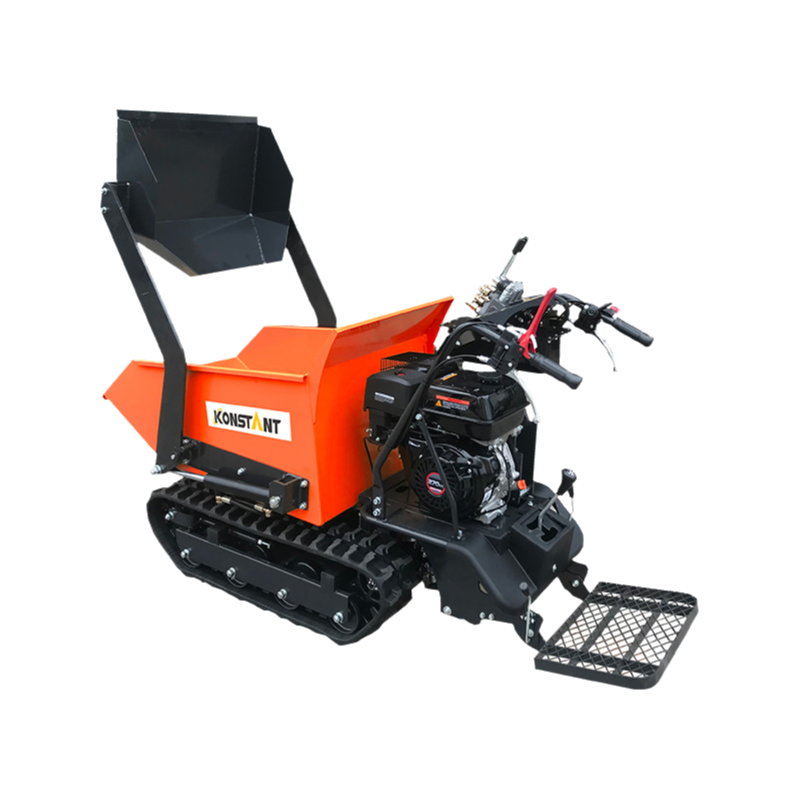Provide you with the latest enterprise and industry news
How Can an Electric Garden Loader Transform Your Landscaping Projects?
Posted by Admin
Landscaping projects often require equipment that can manage soil, plants, and materials with efficiency. Among the machines available today, the electric garden loader has become an option many homeowners and property managers consider for various outdoor tasks. Its design and operation are focused on supporting a cleaner and quieter work environment compared to conventional models. This guide explores why individuals might select this type of equipment, how it compares to gasoline alternatives, and essential maintenance practices to keep it in good working condition.
Why Choose an Electric Garden Loader for Home Landscaping
Home landscaping often involves a mixture of tasks such as soil preparation, moving gravel, distributing compost, or transporting plants. Choosing an electric garden loader for these projects can provide an approach that emphasizes ease of use and environmental awareness. Unlike larger commercial machinery, this type of loader is built for residential settings where minimizing noise and emissions is often important.
Another factor lies in its suitability for neighborhood environments. Many homeowners want to carry out weekend projects without disturbing others. The electric system allows for quieter operation, enabling garden activities to be performed early in the morning or later in the evening without causing inconvenience.
Practicality also plays a role. Electric models typically come with a design that simplifies maneuvering in tight spaces. Gardens and yards are not always designed for heavy machinery, so the compact form helps in navigating narrow paths, flowerbeds, or corners. Furthermore, the reduced maintenance associated with electric systems can be appealing to individuals who prefer equipment requiring less technical oversight.
Electric Garden Loader vs Gasoline Models: Key Differences Explained
When deciding between electric and gasoline equipment, homeowners often evaluate how each type fits their unique needs. While both options are designed to perform similar tasks, there are notable distinctions worth understanding.
Operation and noise level
Electric versions tend to run more quietly compared to gasoline alternatives. This can be beneficial in suburban areas or shared residential environments where maintaining a peaceful atmosphere is valued. Gasoline loaders, while more powerful in some cases, can generate higher sound levels during operation.
Environmental considerations
An electric garden loader produces no direct exhaust fumes, making it a cleaner choice for use around plants, families, and pets. On the other hand, gasoline models rely on fuel combustion, which contributes to emissions.
Maintenance requirements
One of the differences that users notice quickly involves upkeep. Electric systems often require fewer service checks compared to gasoline engines, which need oil changes, fuel management, and spark plug inspections. While electric units still require proper care, the routine can be more straightforward.
Power and workload
Gasoline machines may provide extended runtime in areas without access to electricity. However, many residential projects do not demand the levels of output, making electric loaders a balanced solution for common landscaping jobs.
In short, the decision often depends on personal priorities. Those who value environmental responsibility, reduced noise, and manageable upkeep might lean toward an electric choice, while individuals working on larger, remote properties could still consider gasoline equipment.
Essential Maintenance Tips for Keeping Electric Garden Loader Efficient
Even though an electric garden loader is known for being less demanding than traditional fuel-powered machines, regular care is essential to ensure reliability and long service life. Proper maintenance not only protects the machine but also keeps projects running smoothly.
1.Battery care
Since electricity powers the loader, the battery becomes its core. Users should charge the unit according to the manufacturer's guidelines and avoid leaving the battery completely drained for extended periods. Proper charging cycles extend performance and longevity.
2.Cleaning after use
After each task, removing soil, leaves, and moisture from the loader prevents buildup that could affect moving parts. A quick wipe-down and inspection help the machine remain ready for the next project.
3.Tire and wheel checks
Tires play a crucial role in stability and safe operation. Regularly checking tire condition and pressure keeps the loader moving smoothly across different terrains.
4.Inspecting moving components
Although the machine does not have as many service-intensive parts as a gasoline engine, bolts, joints, and handles should be examined for wear. Tightening loose parts ensures safe handling.
5.Storage practices
Storing the loader in a dry location away from temperatures prevents unnecessary wear on electrical systems. Covering it during off-seasons can also shield it from dust and humidity.
By following these straightforward steps, homeowners can extend the functionality of their garden loader without investing excessive time in complex servicing routines.
Practical Applications in Landscaping Projects
The electric garden loader is not only about convenience but also about enabling a wide range of outdoor projects. Homeowners have found it useful for carrying compost, distributing mulch, transporting decorative stones, and even moving potted plants. For DIY garden projects, it can reduce the physical strain of manual hauling, making yard work more accessible to people of varying ages and abilities.
Landscaping often involves repetitive tasks that can become tiring. With an electric loader, tasks are simplified, allowing more focus on creativity and design rather than physical effort. This efficiency can encourage homeowners to take on projects they might have previously avoided due to the labor involved.
The electric garden loader continues to gain attention as an adaptable tool for residential landscaping. By choosing this type of equipment, homeowners can balance environmental responsibility, quiet operation, and practical functionality. While it differs in certain ways from gasoline alternatives, its design aligns well with everyday garden projects. With the right maintenance practices, it can remain a valuable partner for years, making outdoor work both manageable and enjoyable.

 English
English русский
русский Français
Français Español
Español Deutsch
Deutsch















